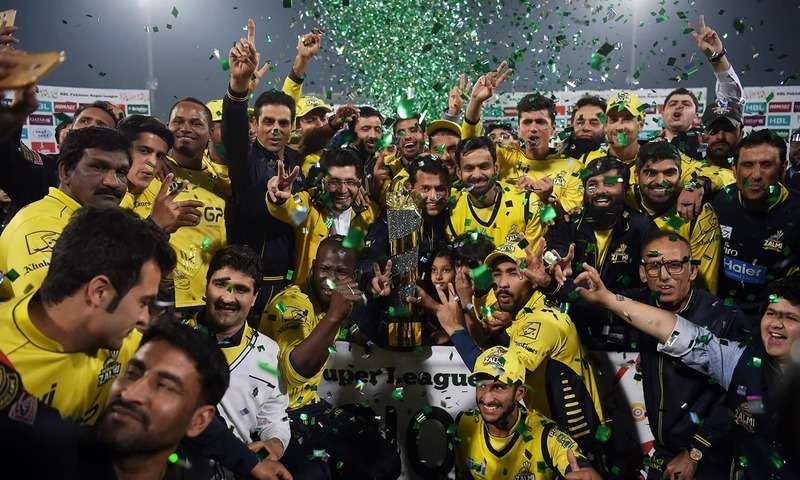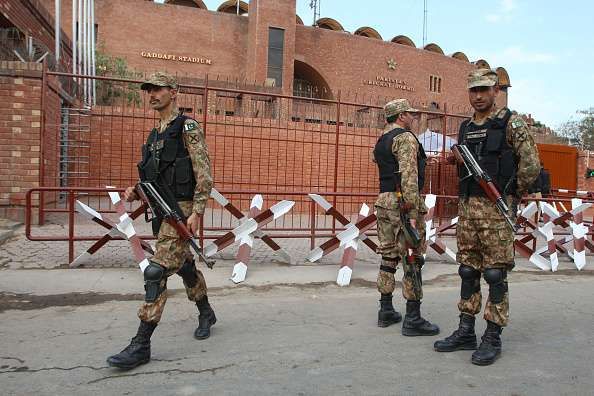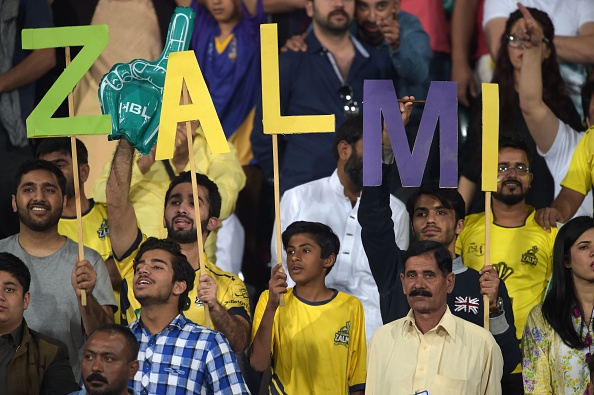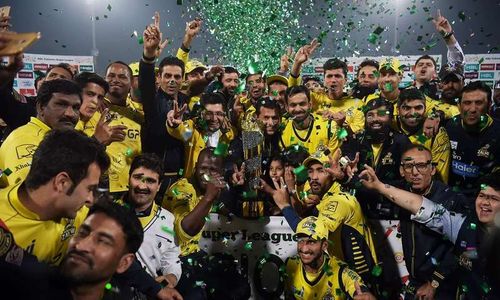
The emotional impact of Lahore hosting the PSL final and its significance
After a majority of the PSL was played in Dubai and Sharjah, the PCB decided to have the final in their homeland at Lahore’s Gaddafi Stadium, Pakistan's Mecca of cricket. After the infamous firing near the stadium prior to the third day of the second Test between Sri Lanka and Pakistan, hardly any international cricket was held in Pakistan.
That was until Zimbabwe toured there in 2015 to play two T20Is and three ODIs at the Gaddafi Stadium.
With security always being the one factor that makes every player think twice before playing in Pakistan, the PCB decided that all the players would be flown in and out of the country within a short window before and after the final.
The board also planned to replace overseas players who were not comfortable with travelling to Pakistan in a separate draft that would be held before the final stage of the tournament.
Security arrangements made for the match and emotion showed by the spectators
And then came the 5th of March, 2017, eight years and two days after the firing incident that jeopardised the hosting of international cricket matches in Pakistan. A lot of security arrangements were made for the smooth implementation of the final as a total of six army paragliders dove out of a helicopter and landed at the stadium aside from the security checks that were held two kilometres away from the ground.

Seeing the Gaddafi Stadium jam-packed after so long it reminded the fans of the matches that were held here before, especially the one on that fatal day in 2009. Terrorism has affected Pakistan deeply and has also had an adverse effect on the country’s cricketing culture. The lack of home matches in the last few years has been a factor behind Pakistan dropping down to 8 in the ICC ODI rankings.
Getting Lahore to host the PSL final was not an easy task for the PCB especially with the fact that the city had recently undergone a series of terrorist attacks that claimed more than 100 lives. However, the PCB never gave up and found assistance from the Punjab government who provided plenty of security to guarantee the safety of the thousands of spectators attending the final.
Also read: Pakistan could host World XI in four-match T20 series in Lahore
However, this was not enough to convince the overseas players to take part as many of the Quetta Gladiators’ foreign recruits namely Kevin Pietersen, Tymal Mills, Rilee Rossouw, Luke Wright and Nathan McCullum decided not to play in the final.
Shouts of Lahore aye Lahore aye echoed through the Gaddafi Stadium as the seats began to be filled. Despite the Lahore Qalandars not reaching the final, both teams found immense support from the supporters with Quetta Gladiators’ skipper Darren Sammy being given the name Darren Sammy Khan. The two-time World T20 winning skipper responded by clicking selfies with a number of supporters.
The crowd showed their respect and appreciation towards the policemen and army paragliders with some respectful salutes.
The match and the significance of holding the PSL final in Pakistan
The match did not pan out as the fans expected it to as it was a little too one-sided. Last year’s runners-up Quetta Gladiators (who had beaten Peshawar Zalmi by 1 run in the playoffs) won the toss and put Peshawar Zalmi in to bat first.
Kamran Akmal’s 32-ball 40 and skipper Darren Sammy’s 11-ball cameo of 28 took Zalmi to a total of 148/6 in their 20 overs. In reply, the Quetta Gladiators were skittled out for 90 thanks to the brilliant bowling spells by Mohammed Asghar, Wahab Riaz and Hasan Ali. Asghar took 3/16 and Riaz and Ali took 2/13 respectively.

Sammy’s crucial cameo in the death overs earned him the Man of the Match award and Peshawar Zalmi won their first PSL title. For the rest of the world, it was the final of a domestic Twenty20 tournament but for the people of Pakistan, especially those of Lahore, it was a restoration of pride and honour to the nation’s cricketing culture.
The match at Lahore was contested by a total of seven overseas cricketers and will surely be a big step in the restoration of international cricket to Pakistan.
